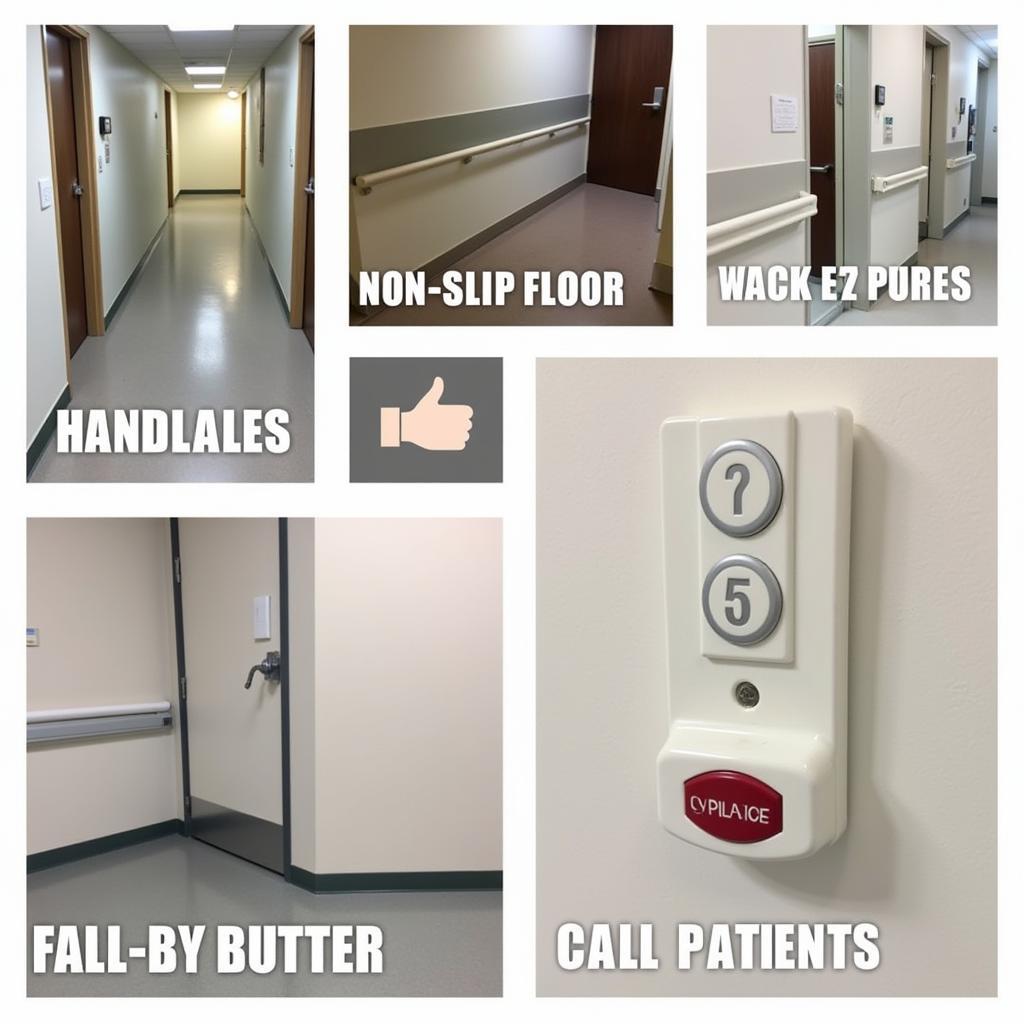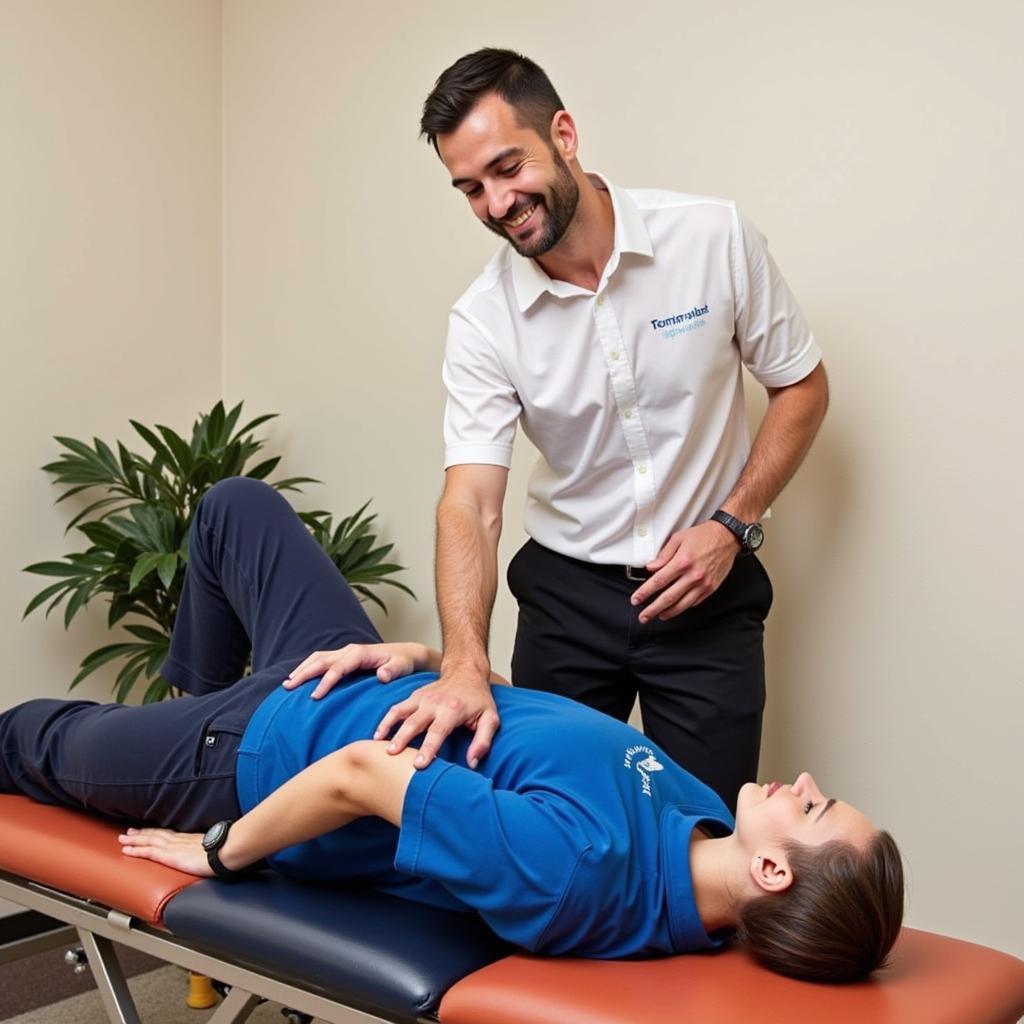Hospital Acquired Disability, a term that can evoke fear and uncertainty, refers to any physical or cognitive impairment that develops during a hospital stay that wasn’t present upon admission. While hospitals are places of healing, certain complications or unforeseen circumstances can, unfortunately, lead to disabilities. This article delves into the complexities of hospital acquired disability, shedding light on its causes, prevention strategies, and resources for support.
What Leads to Hospital Acquired Disability?
The development of a disability during a hospital stay can stem from a variety of factors, ranging from medical procedures to infections. Let’s explore some common causes:
-
Surgical Complications: While surgery is often necessary and life-saving, it inherently carries risks. Complications like nerve damage, infections, or adverse reactions to anesthesia can contribute to disability.
-
Hospital-Acquired Infections (HAIs): Hospitals, by their nature, house a high concentration of individuals susceptible to infections. HAIs like pneumonia, urinary tract infections, and bloodstream infections can lead to serious health complications, potentially resulting in disability.
-
Medication Errors: Medication errors, though preventable, can have serious consequences. Incorrect dosages, allergic reactions, or adverse drug interactions can lead to impairments, affecting mobility, cognition, or other vital functions.
-
Falls and Trauma: Hospitals, despite safety protocols, can be hazardous environments for patients with mobility issues or confusion. Falls can result in fractures, head injuries, and other trauma, potentially leading to long-term disability.
-
Pressure Ulcers: Prolonged immobility can lead to pressure ulcers, also known as bedsores, which are injuries to the skin and underlying tissue. Severe pressure ulcers can become infected, leading to serious complications and potential disability.
Mitigating the Risks: Strategies for Prevention
Preventing hospital acquired disability requires a multifaceted approach, involving healthcare providers, patients, and their families. Here are some key strategies:
-
Rigorous Infection Control: Hospitals must implement and strictly adhere to rigorous infection control protocols. Hand hygiene, proper sterilization techniques, and isolation procedures are crucial in preventing HAIs.
-
Medication Safety Measures: Hospitals need robust systems to minimize medication errors. Electronic prescribing, pharmacist verification, and patient education about their medications are vital components of medication safety.
-
Fall Prevention Programs: Identifying patients at risk for falls and implementing preventative measures is critical. This includes bed alarms, non-slip socks, frequent monitoring, and assistance with mobility.
-
Early Mobility and Rehabilitation: Encouraging early mobility after surgery or illness is crucial for preventing complications like muscle weakness, joint stiffness, and pressure ulcers. Physical and occupational therapy can play a vital role in regaining function and independence.
-
Patient and Family Education: Empowering patients and their families with knowledge about potential risks and preventative measures is essential. Open communication with healthcare providers, asking questions, and actively participating in care decisions can significantly reduce the risk of disability.
 Hospital Fall Prevention Measures
Hospital Fall Prevention Measures
Navigating the Aftermath: Seeking Support and Resources
If you or a loved one has experienced a hospital acquired disability, seeking support and information is essential.
-
Patient Advocacy Groups: Numerous organizations advocate for patient rights and provide valuable resources for those affected by medical errors or hospital-acquired conditions. These groups can offer information, support networks, and guidance on navigating the healthcare system.
-
Legal Assistance: In cases of negligence or preventable harm, seeking legal counsel specializing in medical malpractice is advisable. A qualified attorney can help determine if legal action is appropriate and guide you through the process.
-
Rehabilitation and Support Services: Accessing comprehensive rehabilitation services, including physical, occupational, and speech therapy, is crucial for maximizing recovery and adapting to life with a disability. Support groups and counseling can provide emotional support and coping strategies for individuals and families.
 Physical Therapy for Recovery
Physical Therapy for Recovery
Moving Forward: A Focus on Patient Safety and Well-being
Hospital acquired disability represents a significant challenge within healthcare. By prioritizing patient safety, implementing preventative measures, and providing comprehensive support, we can strive to minimize the occurrence of these debilitating events. Remember, knowledge is power, and staying informed about potential risks and advocating for your well-being are essential steps in ensuring a safe and positive healthcare experience.